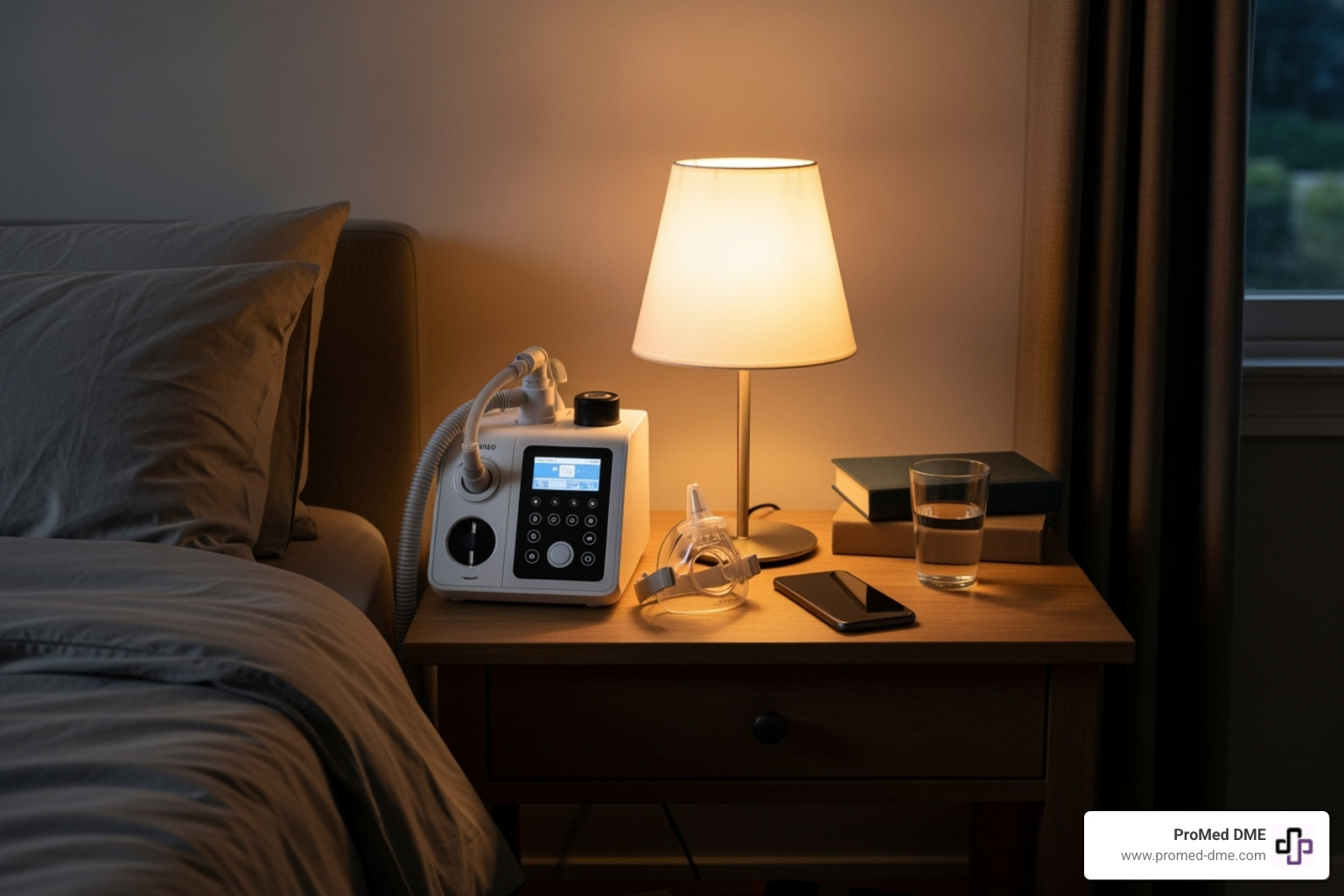Understanding the Importance of Insurance Verification in Patient Care
Why Is Insurance Verification Important?
1. Ensures Active Coverage: Confirms the patient's insurance is valid and active.
2. Prevents Surprise Bills: Helps avoid unexpected costs for both patients and healthcare providers.
3. Secures Payment: Ensures the healthcare provider is reimbursed for the services provided.
4. Boosts Patient Satisfaction: Patients are more content when they know their financial responsibilities upfront.
Insurance verification acts like the guardrail of the healthcare journey, guiding both patients and providers safely towards a mutual understanding of coverage and responsibilities. In the realm of patient care, particularly for those dealing with chronic conditions, navigating the complexities of insurance can be daunting. A clear verification process not only alleviates the fear of unforeseen medical bills but also builds a foundation of trust between the patient and healthcare provider.
With the rising cases of insurance fraud and claim denials, verifying insurance has never been more crucial. It plays a pivotal role in confirming the eligibility of claims, thus minimizing the risk of denial and fraud. As such, timing is of the essence; verifying insurance ahead of each visit ensures that all parties are on the same page, fostering a smoother billing process and a stronger revenue cycle for healthcare providers.

Here’s how it fits into the bigger picture:
- Definition: It's the first step in the medical billing cycle. Before any treatment starts, healthcare providers check with your insurance to make sure it's good to go.
- Medical Billing: Think of insurance verification as the foundation of medical billing. It decides how billing will proceed, based on what your insurance will pay for.
- Coverage Determination: This part is about getting into the details. It checks what specific treatments or services your insurance covers. For example, does it cover that emergency room visit or that special kind of blood test?
Why is this important? Well, for starters, it keeps surprises off your bill. Imagine thinking your insurance will cover a visit to the doctor, only to get a big bill because it didn't. That's what insurance verification helps to avoid.
It's a safety net both for you and the healthcare provider. You get to know what you might need to pay, and the provider knows they'll get paid for their services. It's all about making sure everyone is on the same page before any medical services are provided.
In short, why is insurance verification important? It's crucial because it:
- Prevents unexpected bills: You'll know upfront what your insurance covers.
- Ensures payment for healthcare providers: They can be confident they'll be compensated for their services.
- Clarifies coverage: No guessing on what treatments are covered.
By now, it should be clear that insurance verification is a key player in the healthcare field. It's the start of a journey that ensures smooth sailing for both patients and healthcare providers when it comes to medical services and billing.
Why Insurance Verification Matters
When we talk about why is insurance verification important, we're really digging into the heart of patient care. Let's break it down into three critical areas: claim denials, financial transparency, and patient satisfaction.
Claim Denials
One of the biggest headaches in healthcare is when a claim gets denied. This can happen for a bunch of reasons like inactive policies or services not covered. Imagine providing a service, then finding out you won't get paid because of a technicality. Ouch.
Insurance verification acts like a shield against this. By checking everything upfront, healthcare providers can avoid the pain of denials. It's like checking the weather before going out; you know what to expect and can plan accordingly.
Financial Transparency
Nobody likes surprises, especially when it comes to money. Insurance verification brings everything into the light. It tells you what's covered, what's not, and how much the patient needs to pay. This way, there are no unexpected bills popping up, causing stress for patients and awkward conversations for healthcare providers.
Here's a simple truth: when patients know what to expect financially, they're more likely to trust and feel satisfied with their healthcare experience. It's all about setting clear expectations from the get-go.
Patient Satisfaction
At the end of the day, healthcare is about taking care of people. When patients understand their insurance coverage and know they won't face surprise bills, they're happier. And happy patients are what healthcare is all about.
Insurance verification might seem like a small step, but it has a huge impact on patient care. It builds trust, reduces stress, and helps ensure that patients can focus on what's really important: getting better.
By making insurance verification a priority, healthcare providers can minimize claim denials, ensure financial transparency, and boost patient satisfaction. It's a win-win-win situation.
And remember, at the core of why insurance verification is important is the commitment to patient care. It's not just about the numbers; it's about making sure patients feel supported and cared for every step of the way.
In the next section, we'll dive into the nuts and bolts of how insurance verification is done. Stay tuned to learn how to streamline this essential process in your healthcare practice.
The Process of Insurance Verification
When it comes to patient care, knowing the specifics of insurance verification is key. Let's break it down into simple steps to see how it's done.
Gather Information
First things first, you need to collect all the necessary details from the patient. This is like gathering ingredients before you start cooking. You'll need the patient's insurance ID, policy number, and the name of the insurance company. It's crucial this step is done carefully to avoid any hiccups later on.
Verify Policy Status
Next up, check if the patient's insurance policy is active. It's like checking if your ingredients are still good to use. An expired or inactive policy won't cover healthcare services, which could lead to unexpected costs for the patient and payment delays for the provider.
Confirm Coverage Details
Now, dive into the specifics of what the patient's policy covers. This step is akin to reading a recipe in detail before you start. You'll need to find out which services and treatments are covered and if there are any restrictions. It's important to know if the healthcare provider is in-network or out-of-network, as this affects coverage.
Check Financial Responsibilities
Last but not least, verify the patient’s financial responsibilities. This includes checking for any copays, deductibles, or coinsurance that the patient will need to pay out of pocket. It's like checking the price tags on your ingredients to ensure you're not going over budget.
By following these steps, healthcare providers can ensure that the billing process runs smoothly and efficiently. It also helps in avoiding unpleasant surprises for both the patient and the provider. With accurate insurance verification, everyone is on the same page about what services are covered and what the patient's financial obligations are.
Insurance verification is not just a one-time task. It's a vital ongoing process that ensures clarity and transparency in the financial aspects of healthcare. Making sure this process is handled effectively can lead to fewer claim denials, steadier cash flow, higher patient satisfaction, and more efficient scheduling.
We'll explore the challenges that can arise during the insurance verification process and how to overcome them. Keeping the process smooth and efficient is crucial for both patient care and the financial health of healthcare practices.
Challenges in Insurance Verification
Insurance verification might sound straightforward, but it comes with its own set of challenges. Understanding these hurdles is the first step to overcoming them, ensuring that patients receive the care they need without unexpected financial burdens.
Inaccurate Information
One of the most common issues in insurance verification is dealing with inaccurate information. Sometimes, this is due to simple human error, such as a patient providing an outdated insurance card or misspelling their policy number. Other times, it might be because the insurance database has not been updated with the latest patient information.
The Impact: Inaccurate information can lead to claim denials, delays in care, and increased administrative work as staff scramble to correct the errors.
Policy Changes
Insurance policies are not static. They can change for a variety of reasons, such as new regulations, changes in the patient's employment status, or modifications made by the insurance provider. These changes can affect coverage details, including which services are covered and to what extent.
The Impact: If healthcare providers are not aware of these policy changes, they may inadvertently provide services that are no longer covered, leading to denied claims and potential financial loss for the patient and the provider.
Administrative Burdens
The process of insurance verification is often time-consuming and labor-intensive. It requires dedicated staff to meticulously check each patient's insurance status, coverage details, and financial responsibilities. This administrative burden can be especially challenging for smaller practices with limited staff.
The Impact: The time and resources spent on insurance verification can strain a healthcare facility's operations, diverting attention from patient care and other critical tasks.
Overcoming these challenges requires a combination of thorough training, the use of technology, and clear communication with patients and insurance providers. By addressing the issues head-on, healthcare providers can minimize the risk of claim denials, ensure financial transparency, and maintain high levels of patient satisfaction.
As we delve into the benefits of effective insurance verification, we'll see how tackling these challenges not only improves the billing process but also enhances the overall patient experience.
Benefits of Effective Insurance Verification
Effective insurance verification is a cornerstone of a smooth-running healthcare operation. Let's explore why it's so crucial.
Fewer Claim Denials
First up, fewer claim denials. When insurance is verified accurately upfront, there's less chance of a surprise "not covered" response from insurance companies later on. This means the healthcare provider can be confident that the services rendered will be compensated. It's simple: the right verification reduces the headache of re-submitting claims or, worse, writing off unpaid services as losses.
Steadier Cash Flow
Next, let's talk about steadier cash flow. This benefit is a direct result of fewer claim denials. When claims are paid promptly and accurately, healthcare providers enjoy a consistent revenue stream. This stability is essential for budgeting, planning, and investing in the future of the healthcare practice. It keeps the lights on and the doors open.
Higher Patient Satisfaction
Higher patient satisfaction is another significant benefit. Imagine being a patient and finding out after a visit that your insurance doesn't cover the service. Frustrating, right? Now, imagine knowing exactly what's covered and what your out-of-pocket costs will be beforehand. Much better. Effective insurance verification provides this clarity, leading to happier, more informed patients.
Efficient Scheduling
Lastly, efficient scheduling. Knowing insurance details in advance helps healthcare providers manage their time and resources better. For example, if a particular treatment needs prior authorization, finding out before the patient arrives saves everyone time. It also helps in scheduling patients who may need immediate care but have limited coverage, ensuring they receive the necessary treatments without undue delay.
By focusing on effective insurance verification, healthcare providers can tackle common operational challenges. This leads to a more efficient, transparent, and patient-friendly environment. Everyone benefits: healthcare providers can manage their practices more effectively, and patients receive the care they need without the added stress of insurance uncertainties.
Remember that tools and services like those offered by ProMed DME can be invaluable allies in navigating the complexities of insurance verification. Embracing these resources is a step towards a more streamlined, patient-centric healthcare experience.
Frequently Asked Questions about Insurance Verification
Navigating insurance can often feel like trying to solve a puzzle without all the pieces. To help clear up some of the confusion, let's dive into some of the most common questions about insurance verification.
What does insurance verification mean?
At its core, insurance verification is like double-checking your shopping list before heading to the checkout. It's the process where healthcare providers confirm that your insurance is active and covers the services you need. This step is crucial because it ensures that both you and the provider know what's covered before any services are rendered.
Why is verification important in healthcare?
Imagine going to a restaurant, ordering a meal, and then finding out it's not covered by your meal voucher. That's what can happen in healthcare without insurance verification. Why is insurance verification important? It's simple:
- Prevents Surprise Bills: Just as you'd want to know the cost of your meal upfront, insurance verification helps avoid unexpected healthcare bills.
- Ensures Payment: For healthcare providers, it confirms that they will be compensated for their services, keeping their operations smooth and efficient.
- Improves Patient Experience: By knowing your coverage details, you can make informed decisions about your healthcare without the added worry of financial surprises.
How often should insurance be verified?
Insurance policies can change as often as the seasons, so it's wise to verify insurance every time you receive healthcare services. Even if you're a regular patient at a facility, a quick check can save you from unexpected changes in your coverage. Think of it as checking the weather before you leave your house; it's a small step that can prevent major inconveniences.
As we continue to explore the importance of insurance verification in healthcare, it's clear that staying informed and utilizing available resources, such as those from ProMed DME, can make a significant difference in the healthcare experience for both providers and patients. Moving forward, embracing these practices is not just beneficial but essential for a healthcare system that prioritizes patient care and financial transparency.
Conclusion
In the landscape of healthcare, the significance of insurance verification is undeniably profound. It serves as the foundation upon which the pillars of patient care, financial stability, and operational efficiency are built. At ProMed DME, we recognize the critical role that accurate insurance verification plays in ensuring that healthcare providers are reimbursed for their services, and patients are clear about their financial responsibilities.
Why is insurance verification important? The answer is multifaceted. It not only facilitates a smoother billing process, reducing the risk of claim denials and enhancing patient satisfaction, but it also ensures that healthcare providers can maintain a steady cash flow. This, in turn, allows them to continue offering high-quality care without the added stress of financial uncertainties.
At ProMed DME, we are committed to supporting healthcare providers by offering resources and expertise to simplify and streamline the insurance verification process. Our goal is to empower you to focus on what you do best: providing exceptional care to your patients. With the right tools and support, navigating the complexities of insurance verification becomes less daunting, enabling a more efficient and patient-centric healthcare system.
We understand that the changing nature of healthcare demands adaptability and a proactive approach to insurance verification. That’s why we continuously update our resources page with the latest information and tools to assist healthcare providers in this critical task. By leveraging technology and embracing best practices, we can together enhance the patient experience and ensure that your practice thrives in today’s complex healthcare landscape.
In conclusion, the importance of insurance verification in healthcare cannot be overstated. It is the backbone of a smooth-running operation, ensuring that services provided are covered, reducing administrative errors, and enhancing patient satisfaction. ProMed DME stands ready to be your partner in this essential process, helping you navigate the intricacies of insurance verification with ease and confidence. Together, let's pave the way for a more efficient and patient-centric healthcare system.
Related Resources & Articles
Stay informed with our informative blog posts.
Discover the ProMed Advantage
& Try Our Products
We offer free shipping and legendary customer service to ensure you receive the
best DME products for your needs.



